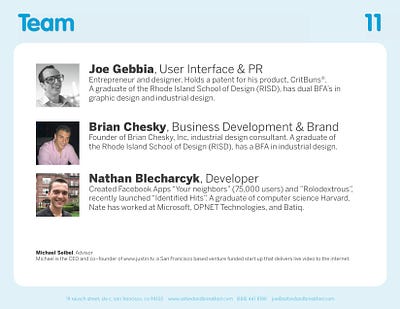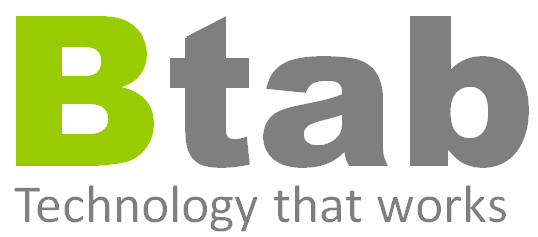Written by Paige Craig (Venture Capital)
Airbnb, My $1 Billion Lesson
On investing in Airbnb’s seed round…or not.
I discovered Airbnb on August 12, 2008 and six weeks later gave them a term sheet for their entire seed round. But in the (literal) final hour, it fell apart.
It’s an unusual story and one of several key experiences that shaped my approach to investing in startups. Over the last seven years, I’ve discovered and invested very early in a handful of highly valuable companies (Wish, Lyft, Zenpayroll, Postmates, AngelList, Plated, Styleseat, Klout, etc.) as well as plenty of disasters. But Airbnb taught me some of the most distinct lessons as an investor.
Brian Chesky recently wrote about his 7 Rejections — feedback from a small set of the many investors who turned him down. This is my story as the one guy who didn’t. I was one of the few investors who actively pursued this deal from August through October 2008, and the only among them to agree on a term sheet.
Every deal, every interaction with a founder teaches you something and I’ve consistently revisited my performance, my judgements, my biases, my filters and my approach to investing. Like most of you I’m highly critical of myself — this may not be self-evident, but I constantly question myself and engage in my own personal creative destruction. I question my beliefs and my tactics; I tear myself down and try to figure out what I’m missing, what I’m doing poorly, where I’m letting people down. And then I build myself back up again.
On a tactical level, I repeat this creative destruction almost weekly as I analyze an individual deal; on an operational level I do it every few months (re-evaluating my deal flow, co-investor network, deal structures, etc.); at a strategic level I sit down almost every year and question my overall philosophy on founders, theses, markets, etc.
Today I’ll share with you my tactical critique on the Airbnb deal and the key lessons I learned.
Sourcing
Let’s start with sourcing — how did I find Airbnb? If you look at my four tactics for deal sourcing, I engaged in classic hunting.
>My approach then — and still to a degree today — was imagining future solutions and then focusing my time on finding founders who fit within those theses. When I started as an angel in ‘07/’08, I would pick an idea and just start Googling for websites and news articles about any young company that matched. (Now I’ve the benefit of sites like AngelList, ProductHunt, and Betalist plus a much larger network of tech relationships to help me hunt.)
I believed that there was a massive opportunity in the collaboration economy specifically around hospitality. Earlier in 2007 I had this idea of the “biggest virtual hotel in the world.” I can’t remember exactly what triggered this thesis, but if you hang around me you know that I frequently spin out crazy ideas about what the world needs. I bounce them against smart friends and do some desk research and brainstorming, then if they survive I start looking for relevant founders. Generally I can’t find the right team, however…trying to find the right team that meets your thesis is difficult, and pushing other people to build one of your ideas is horrible.

After stumbling into “Airbedandbreakfast.com” that August, I immediately signed up, played around and reached out to the guys via their Contact Us email. I was based in Washington, DC at the time, but after a short email thread and review of the original deck I responded within 48 hours that I’d fly out and meet them face-to-face the next week at the Brainwash.
Diligence
Luckily for me, I didn’t put much emphasis on their metrics. If you looked at the Airbedandbreakfast.com numbers as of September 20, 2008 you would have seen a sharp drop off (around 50%) in users, reservations, and revenue from August to September.
My primary focus was on understanding the team. I was incredibly impressed by their work ethic, vision, and scrappiness — you could feel that these guys were all-in and nothing would hold them back. That small set of data just didn’t come close to conveying how impressive this team was. They were using their own crappy home as a test bed, leveraging the travel boost of 2008 Democratic National Convention (DNC), and getting their hosts to approach reporters. I made introductions to the RNC and to Daniel Hoffer (Co-Founder of Couchsurfing) and submitted bugs about the site — their turnaround was always immediate. We brainstormed product features, user acquisition, budgeting, and fundraising strategies and their responses were thoughtful.
Negotiation
From August 26th to September 25th we engaged in a four week valuation discussion. I won’t go into too much detail, but essentially there were two key events.
Throughout our first meeting, I spent a lot of time going through their budget with them and realized their $100,000 fundraising ask was too low. Based on their traction and burn rate, we came to an agreement that they needed to raise funding closer to $250,000 to give them enough runway, and that it made sense to increase the valuation in order to protect their interest and upside as founders.
The second set of discussions thereafter were pure stupidity on my part. I spent three weeks going back and forth with them negotiating between a valuation of $2M and $2.5M. After a couple weeks, we in fact did agree to terms though, and on September 26th I had Todd Rumberger at Foley put together our docs and coordinate with their lawyer at Fenwick.
Over those extra weeks, however, the other investors who had been circling all dropped out of the deal…instead of a handful of us coming together as I expected, I was the one lone dude writing a check for the entire seed round. But ultimately that was fine by me — I was good to move ahead.
Closing
At the end of September, we agreed on terms and I flew up to San Francisco to do a closing dinner at a little café next to Brainwash. We had some good food and wine and I thought things were solid. We shook hands and planned to formally close the investment the next day.
That next day, however, Todd Rumberger hit me up telling me he still hadn’t heard from Brian. I didn’t think there was anything to worry about — I thought it was just the logistical step of signing the deal papers formally — but I texted Brian to see what the hold up was.
I hear back from him later in the day. Initially, he had great news to tell me: Y Combinator had changed their mind and was in fact going to participate in the round. “Awesome,” I thought, “that’s another great investor for the guys to have involved,” and it gave me some appreciated reassurance after all the prior investors had opted out.
And then Brian told me the second part — that only YC would be participating. Talk about good news followed by ugly fucking news. YC was taking the full allocation and I was getting bumped. And that was it — end of story. After 6 weeks of work, I didn’t get to invest.
Airbnb has of course gone on to execute exceptionally well and become what it is today. I’m genuinely happy for them and for the fact that the world has gotten so on board with collaborative hospitality — Brian, Joe, and Nate brought an amazing product to the market that has changed lives and forged a new industry.
Looking back now with the experience of having invested in well over 100 startups since, I recognize that losing out on this deal had been my fault, not theirs. After getting the boot, I should have gone back to them and found a way to get in. At the time I was still a novice unaware of how venture capital, YC, and the competition for deals works. The reality is I should have worked my ass off to get in that deal even after YC’s decision. These days when I find a deal I want, I chase it until I’m dead and I almost never believe any deal is definitively “closed” off.
Take Aways
Losing a deal like Airbnb can be painful. Great lessons came from the rejection at the very end, however. After getting the cold shoulder, I realized I needed to go out and build some valuable knowledge, needed a more robust network, and needed to craft my own brand as an investor.
When I found Airbnb I was a nobody in the investing world, but I spent the next year afterward traveling around the US meeting founders and investors. I attended and hosted several dozen events and I talked to just about everybody in tech I could. I read voraciously and learned as much as possible from one-on-one conversations. I put in a full year of hard work before I did my next deal.
Airbnb also taught me that investors need to act fast. Over the last several years I’ve learned to close deals quickly and avoid the fine print that distracts some angels and VCs. Helping Brian and the guys put together a realistic budget and valuation was good; I regularly make sure we’re investing enough capital to get a company to the next inflection point. But spending three weeks on minor details is just dumb. You won’t find me wasting founders’ time on that crap anymore.
It’s the positive reasons why I liked Airbnb at the time and recognized its potential when other investors didn’t that have served as my most powerful lessons though. First and foremost — and something I practice every day — is to focus on the founders of a startup, not the metrics.
In the earliest days, metrics will mislead you or simply lack the cumulative data to give you a real answer (to give you the certainty about product-market fit that you will never find at this stage). Metrics are mainly useful for understanding how the founders themselves think about them — but they don’t mean much on their own. Focus your time understanding the people building a company, not its charts and spreadsheets.
And secondly, if you believe in those people, then don’t lose your nerve when other investors fall out. There is a lot of misguided trust (conscious and subconscious) in social cues among tech investors, and you can’t let it distract your judgement. I went ahead with the deal even after every single other VC and angel dropped out because I trusted my gut about the team and the thesis I had outlined. Don’t be afraid to do the same if you find a startup team you feel the same way about.
Airbnb was a tough deal to ultimately miss out on, but the lessons from it enabled me to be a much sharper investor in finding and supporting other exceptional startups in the years since. And at the least, I still get to benefit as a consumer who gets to use the incredible Airbnb marketplace when I travel.
